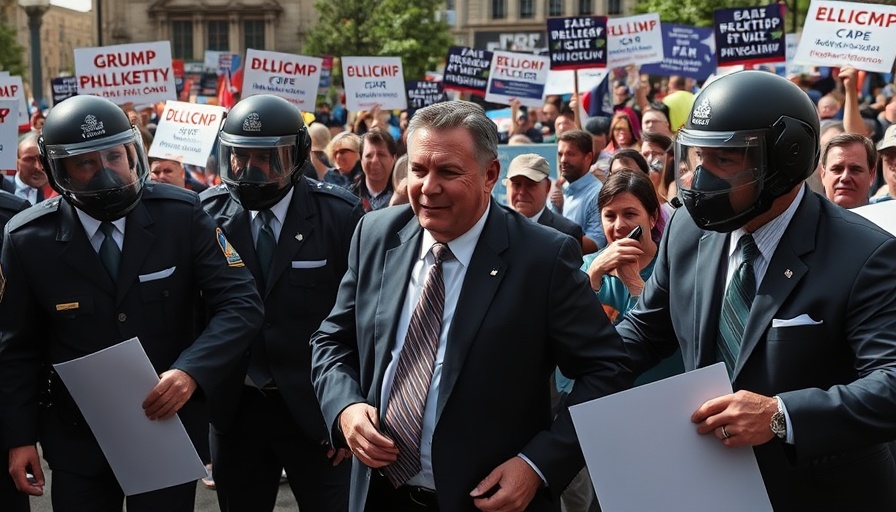
Unprecedented Measures: Secret Service's Response to Threats
A shocking turn of events unfolded recently when the Secret Service suspended six agents responsible for the protection of Donald Trump following an alleged assassination attempt that occurred in July 2024. The unprecedented disciplinary actions, ranging from 10 to 42 days of unpaid leave, have raised eyebrows about accountability and the expectations placed on those tasked with safeguarding high-profile figures.
The Nature of the Allegations
Details surrounding the allegations remain murky, causing national attention as investigations unfold. While the authenticity of the assassination attempt itself has been scrutinized, one thing remains clear: the threat levels against public figures, particularly former presidents like Trump, are elevated in today's climate. The Secret Service’s swift action amplifies the narrative of increasing danger faced by political leaders.
A Dive into Security Protocols
This incident forces us to examine the protocols that govern the Secret Service's operations. Known primarily for high-stakes protection details during presidential campaigns, the agency has faced criticism for its ability to adapt to pressing threats in real time. The disciplinary measures mentioned by Deputy Director Matt Quinn suggest a system grappling with both internal discipline and external pressures.
Implications for Future Political Campaigns
What does this mean for future elections? As we approach the 2024 electoral cycle, the effectiveness of protection teams will be under heightened scrutiny. Candidates may demand stronger accountability measures within the Secret Service, particularly as political violence seems to be on the rise. The agency’s response to this incident could set a precedent for how political security is handled moving forward.
Public Sentiment on Security and Accountability
The public reaction to these suspensions has been mixed. Some celebrate the transparency in how the Secret Service is addressing issues internally, while others see it as a sign of instability within an organization that must project unwavering confidence. As citizens engage with these developments, it's apparent that trust in governmental agencies fluctuates based not only on performance but also on perceived integrity.
The Broader Context of Political Violence
It's essential to contextualize these events within a larger culture of political violence that has seeped into the fabric of American life. Recent years have highlighted an uptick in threats made against public officials. With several incidents of violence, including the January 6 Capitol riot, the political atmosphere remains charged and volatile. This situation raises questions about what society can do to curb violence while also upholding the principles of free speech and political dissent.
What This Means for Trump's Future
For Donald Trump, this disciplinary action comes on the heels of a historically contentious political career. While he continues to garner a devoted following, the implications of such security lapses could either bolster his narrative of being a victim of bureaucratic ineptitude or serve as a cautionary tale about the importance of vigilant protections.
As we continue to analyze the unfolding details surrounding these events, one cannot help but reflect on the delicate balance between protecting public figures and maintaining a transparent and accountable security infrastructure.
Conclusion
This incident serves not only as a wake-up call for the Secret Service but also as a reminder of the complexities surrounding political safety in an ever-evolving landscape. Now more than ever, an engaged citizenry is vital in scrutinizing these protective measures and ensuring that those who safeguard high-profile figures are both held to high standards and adequately supported.
As developments continue, be informed of the latest breaking US news and explore how these issues impact both national security and the political climate.
 Add Element
Add Element  Add Row
Add Row 



 Add Row
Add Row  Add
Add 


Write A Comment